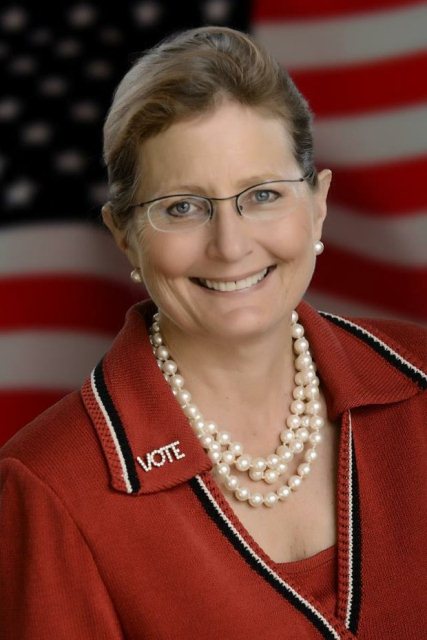By Jeff Brumley
Florida Amendment 8 has pitted secular civil rights and education activists against religious conservatives in a rhetorical battle over the meaning of religious liberty. But the measure also has re-exposed the divide between Baptists over the separation of church and state, a historic, core value of the faith.
Passage would eliminate a 126-year-old constitutional provision barring government financing of sectarian institutions and programs. Instead, it would say religion cannot be the basis for denial of government funding.
Champions of the measure note that the historic “Blaine Amendment” has been long ignored, evidenced by the proliferation of faith-based partnerships with government.
Opponents include the Florida PTA, the Florida School Boards Association, Florida Education Association, Americans United for the Separation of Church and State and the Baptist Joint Committee for Religious Liberty.
The long list of powerful secular and religious supporters includes Florida Gov. Jeb Bush, the Florida Chamber of Commerce, the Florida Conference of Catholic Bishops and the Florida Baptist Convention. The state’s Republican-dominated legislature placed the amendment on the ballot.
‘Lost their way’
That doesn’t sit right with Tim Sizemore, pastor of the Church in the Meadows in Lakeland, Fla., which partners with Cooperative Baptist Fellowship.
“There is a long history in this country of Baptists promoting religious liberty for all people and opposing taxpayer funds being diverted to any religious entity or organization,” Sizemore said.
In his Oct. 29 sermon, now posted on YouTube, Sizemore expressed dismay that Florida Baptists would support the measure.
“Some Baptists have lost their way on this,” Sizemore said at one point. He then added later: “Why have Florida Baptists forgotten where they have come from?”
But they haven’t, said Don Hepburn, director of public relations for the Jacksonville-based Florida Baptist Convention.
Providing better services
The state convention took heat during the 1970s for accepting state money for its Florida Baptist Children’s Homes, Hepburn said. The non-profit houses and educates abandoned, neglected and abused children.
 Support for Amendment 8, for the convention, is about ensuring that state contract continues, Hepburn said.
Support for Amendment 8, for the convention, is about ensuring that state contract continues, Hepburn said.
“Baptists have long stood on separation of church and state,” Hepburn said. “But in this particular nuance you have Florida Baptists providing social services that would otherwise go undone or poorly done.”
Throughout the 20th century Florida’s courts permitted state funding for faith-based social-service providers, said Michael Sheedy, associate director of health for the Florida Conference of Catholic Bishops.
 Catholic Charities and Lutheran Social Services are high-profile examples of agencies that receive federal and state dollars to provide services to clients regardless of faith, he said.
Catholic Charities and Lutheran Social Services are high-profile examples of agencies that receive federal and state dollars to provide services to clients regardless of faith, he said.
Supporter: Safeguards continue
Amendment 8’s purpose is simply to codify protection of that long-standing tradition, he said. And it doesn’t seek to use taxpayer money for religious purposes, such as building churches.
Both the U.S. and Florida constitutions, he said, “have establishment clauses that prevent direct funding of religious organizations for religious purposes — that protection remains.”
Yet, others fear the amendment is a Trojan horse for another political cause in Florida: State funding of private school vouchers, said Deirdre Macnab, president of the League of Women Voters of Florida.
 “It would permit a flood of public dollars from our public schools and support any kind of religion,” Macnab said.
“It would permit a flood of public dollars from our public schools and support any kind of religion,” Macnab said.
There have been several unsuccessful efforts to divert tax dollars from public schools to both religious and non-religious voucher programs.
If Amendment 8 passes, Macnab said, the result would be “religious indoctrination using taxpayer dollars,” she said.
Historic battle
One of the first religious liberty battles in American history pitted Baptists against Patrick Henry’s effort to impose a tax on Virginians to pay for the teaching of religion, said J. Brent Walker, executive director of the Baptist Joint Committee.
And it’s one of the reasons BJC opposes Amendment 8, he said.
 “Parents have every right to send their children to religious schools, but they don’t have a right to ask other taxpayers to help them pay for it,” Walker said.
“Parents have every right to send their children to religious schools, but they don’t have a right to ask other taxpayers to help them pay for it,” Walker said.
Sizemore told ABPnews the amendment’s passage would actually open the door to disparity by allowing government to pick and choose who is and isn’t eligible to receive taxpayer dollars.
Churches and ministries left out will feel that sharply, he said.
“It creates a relationship between government and religion that will result in more discrimination.”
The flip side – funding made available to any religious group that applies – will be equally unappetizing to conservative Christians, Sizemore said.
“What will they do when they find out their money is going to a Muslim organization?” he said. “I think many of them will be appalled.”
The amendment is one of 11 placed on this year’s Florida ballot by the legislature. One prohibits individals and businesses from being required to partcipate in the healthcare system. Another prohibits public funding for abortion.
Previous stories:
Florida Baptists back ‘no-aid’ repeal
Land says Obama mandate most anti-Catholic government action in 150 years
